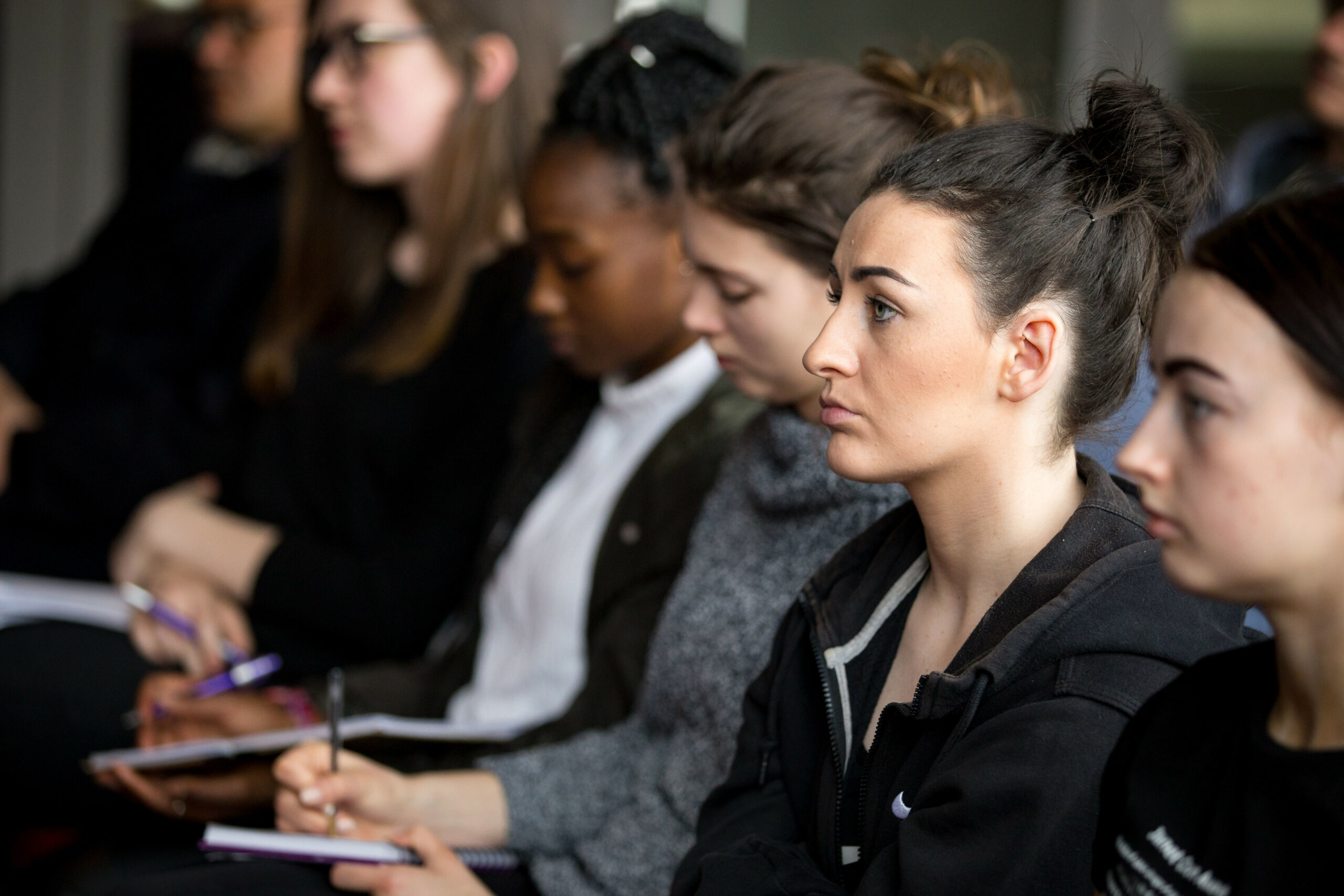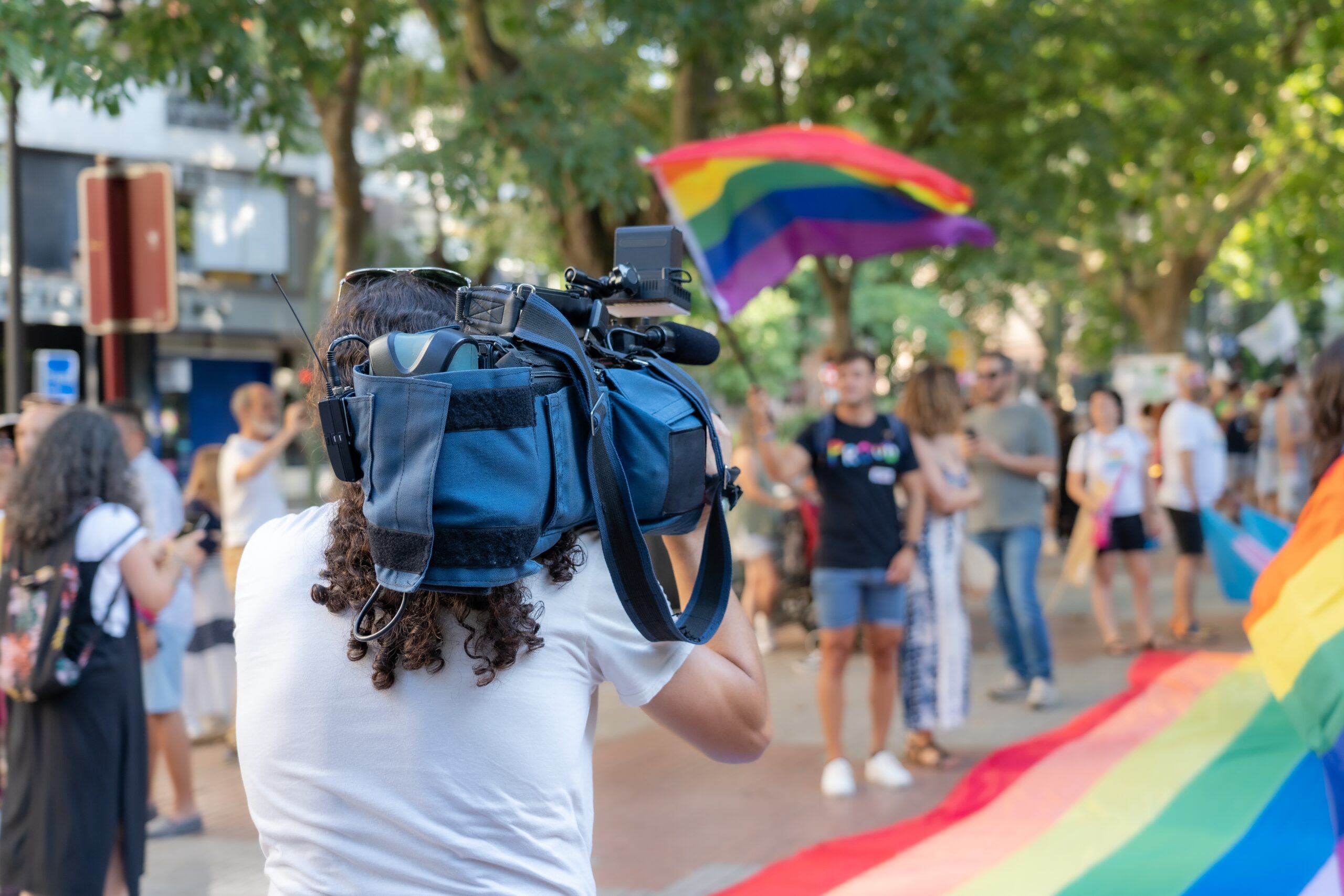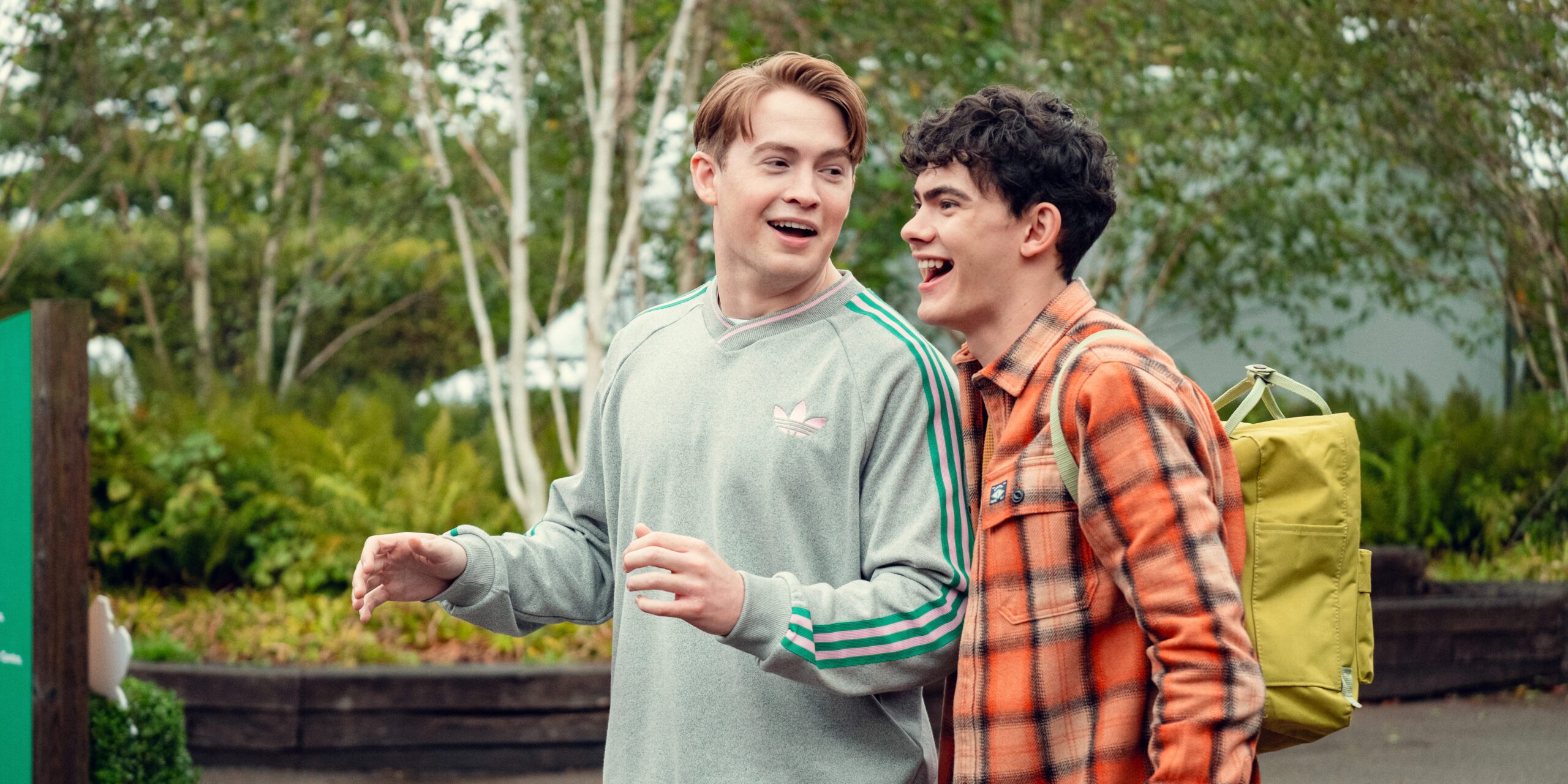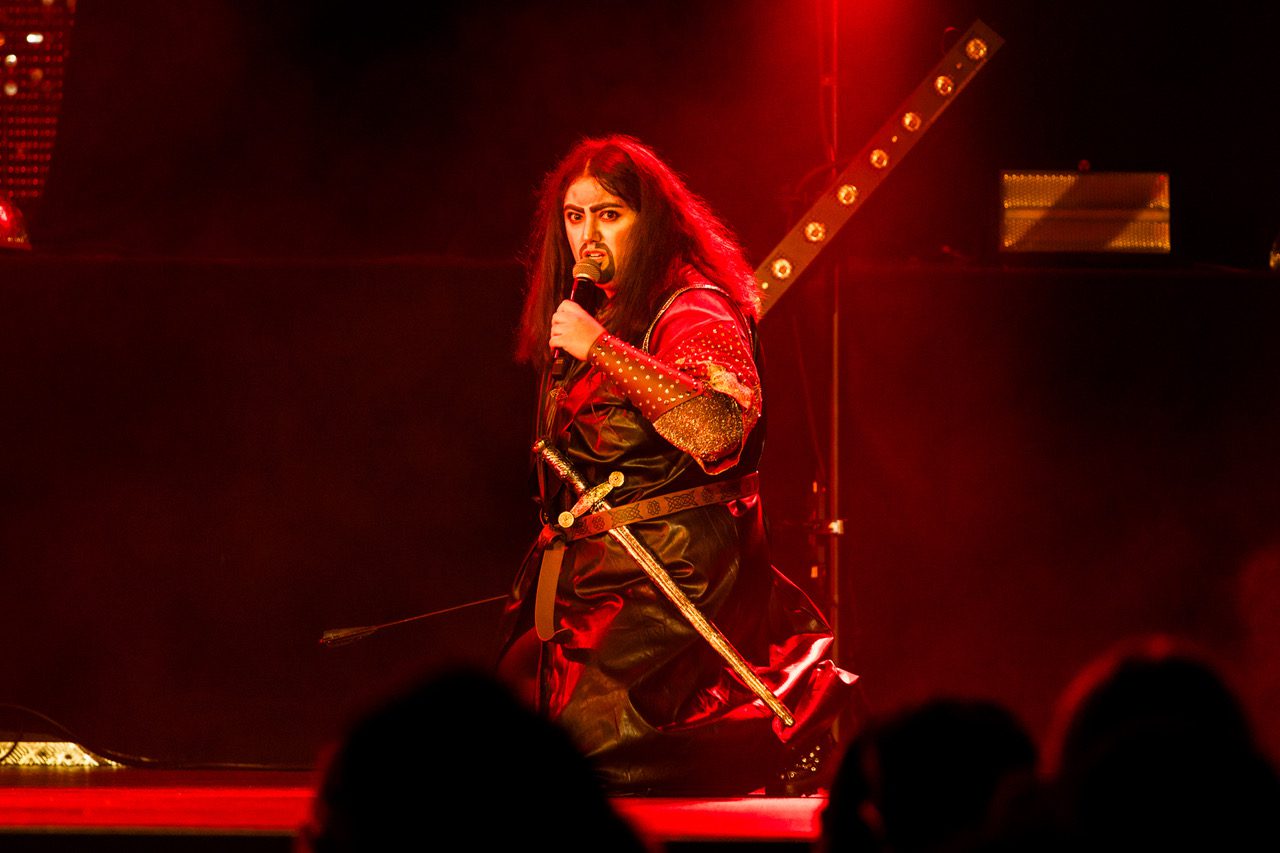Read what Aisha Bywaters, Lauren Evans and Kelly Valentine Hendry had to say about diversity in casting, what to do (and not do) in self-tapes and how they prefer to be contacted.
We hosted a Zoom event for Spotlight members to hear from casting directors Aisha Bywaters, Lauren Evans and Kelly Valentine Hendry. Here’s a taste of all the great advice they shared…
If ethnicity doesn’t feed into the narrative, we can ask why it has to be this character, can we keep it open and find the best person for the job to make sure everyone is having an opportunity? Because I think that’s what is lacking, the opportunity.
What do you do to encourage diversity?
Lauren: Briefs go out to all agents and personal managers. We make sure that agencies of all sizes are getting the briefs, so we’re not limiting it to, as some people think, the top agencies. It goes out to everyone. I don’t know who’s out there and it’s my job to find out. I’d do myself a disservice by doing a tailored list of agencies, even though it’s a longer process to sieve through – it’s part of the job.
I keep all the [appearances] open so you don’t limit anything. I think challenge characters or writing where possible. If ethnicity doesn’t feed into the narrative, we can ask why it has to be this character, can we keep it open and find the best person for the job to make sure everyone is having an opportunity? Because I think that’s what is lacking, the opportunity. Ensuring we look at different groups of underrepresented people – whether it’s disabled actors or trans, non-binary – and making sure we go to them rather than waiting for them to come to us.
Aisha: A lot of what Lauren says rings true, some of this is definitely for us to question and push but it’s also much bigger than us. It’s on a level of what’s commissioned. There comes a point where if you’re speaking to a team who have lived a certain life, it’s asking them to open it up and sometimes they might be willing to but they are also like ‘this is based on my point of view’. In that regard, it’s also what is filtering down to us.
From moment one when you get that script and those roles, you’re asking the questions of can we open this up? Can we play with this? If you are writing a role about someone who came from the Windrush are you going to cast an actor of Black African descent? How far are we taking this? We’ve got to work out those fine things. If it’s someone who has a disability are we going to look for someone who has that disability to honour exactly what’s there or are we going to make it broader and if so, how do we justify it because it might be a question we are asked?
Kelly: We used to pussyfoot around these conversations, so a script would land and you would read it and think, some things need to be changed here. You would think about how you’d politely go about explaining to your bosses effectively that this is not okay. Now we have the confidence to speak out.
Let’s face it, all the stories that we’re getting told are being told through the lens of white men and there’s no getting around that. It’s definitely changing but it’s still the predominant story that’s being told. Many of us casting directors are women so I think we’ve started to be able to push back on that.
I don’t think the writers were doing it on purpose, it was just their lens so actually it took a bit of help and surrounding themselves with people who could filter into that. It’s not there yet. It’s actually quite shocking when you sit in a read-through and, let’s face it, it’s a room full of white people and you might have a story that is written by a Black artist for example. Pretty much everyone around the back of the room is white and it’s changing but not quickly enough. I think we are going in the right direction and people are definitely more willing to listen.
Do you actively seek actors from diverse backgrounds for roles that don’t necessarily mention specific characteristics e.g. trans? If so how do the actors raise their visibility so you know how to find them?
Lauren: I find that Twitter is a good place. I get a lot of emails but I’m always happy to be informed more directly or by agents. Any medium really, it’s always good to be educated on more actors.
Aisha: It’s always about challenging, I think that’s definitely what’s been happening in the past few years anyway, challenging the perception of roles and how they are played.
In terms of people being visible, I’m probably not being contacted that much by disabled actors but I’m being spoken to a lot by disabled agencies about working more with their actors.
Like Lauren said social media is definitely a way forward. Sometimes, by things you’ve looked for, you have these contacts and you keep in contact with them but there’s so much more I could be doing, so much more I could be learning. I’m not going to sit here and say I’ve got it all together at all, it’s a process, but I am completely open to it. Sometimes you’re just doing your work and sometimes you get blinded by that. We have all [recently] had a moment to stop and it’s quite important actually because it does allow you time and that’s been great.
Lauren: I think it’s about trying to make sure you keep trying to get them in because what I’ve seen so much recently is trans actors writing in saying ‘I would love you to keep me in my mind for trans roles’ and of course that’s a given but that’s not all that you’re right for. We should be seeing them for all types of cisgender roles. It’s definitely a work in progress.
Kelly: Casting directors were thought upon in the past as these people you just can’t approach. If we can make the casting room a safe space so if you want to tell us you’re a trans actor in confidence because it makes you feel better and more secure and safe in the room just in case, further down the line… Say an actor is trans and they’ve got the role and then further down in the script there’s something that may become problematic, where they may have to tell someone certain things and whether or not that is something that should be brought up at the point of the audition. There are lots of areas like that. There are lots of tiny things that we would never think about so it’s working out if you can trust us with information. It’s unbelievable what people tell us in casting rooms and it is completely confidential, we should be a safe space, I think if you feel safe then you do your best work.
How do you like to be contacted – has it changed during lockdown?
Aisha: I like to be emailed. I always say an email can’t harm me, so feel free, I can open them in my own time. I do respond if there’s a reason to, which I think sometimes slightly freaks people out because [they aren’t always expecting it]. If I don’t respond don’t take offence, there’s a lot of emails, but if there is a reason to, I do, and that hasn’t changed the way I’ve been in contact with people over lockdown.
The only thing over lockdown which I can say has been slightly troublesome, not for me, is that I am pregnant and having a lovely time – mainly lying down! Sometimes [people have said] ‘some casting directors are doing one to ones or taking generals, what are you doing?’ I know that people are free and they want to utilise their time but I just think they need to remember that we are just people in many different situations.
We run small businesses and it’s been a difficult time for some of us so you just have to go into that respectfully. If you want to ask, ask but just remember that. I love actors and I want to support your journey and be part of that but you don’t know who’s got kids or how people’s lives are in this situation.
Lauren: I’m very happy to be sent an email. Nice and clear, concise with links, Spotlight link or CV and headshot. What I’ve had loads of recently is a really lovely email, with their background, who they are, but no headshot or snapshot or anything and it’s very hard to even consider them or keep it on file without that.
As Aisha said, you never know what other people are up to. They might have elderly relatives or they just need the break. As Kelly said earlier this is a very all-consuming job and we tend to work intensely on projects with a view to having some time off at some point.
Kelly: If I’m being honest I haven’t been paid since February. Not a penny. I have staff who are furloughed because they’re on PAYE, so at least the system works. I’ve got loads of development, there are tonnes of low budget films now popping up because they are the ones that might actually go ahead with a very small cast but they’ve got no funding so I feel like how I was 10 years ago in my career.
I go through phases where I wake up and I feel quite down about everything, actually, if I’m being honest I’m scared of going back to work now because of what it’s going to look like. Are we going to get jobs based on whether we are going to take castings? Are there going to be some casting directors that are going to do sessions?
Answering the actual question, an email is fine. When my mind is on a project I am much more likely to do something with that email.
Is work picking up?
Kelly: It’s starting to pick up, all the shows are starting to be talked about, budgets are starting to come through, we are starting to see the greenlights happening, it’s all going to happen at once.
Lauren: Conversations are happening, but of course with Sex Education we have the additional problem of shooting in Wales where the laws are different. There’s an added complexity but there are conversations happening which are all very positive. I just can’t wait for it all to get back up and running.
Aisha: I did my second Zoom casting today, which actually works so much better than I ever thought it would, I’ve really enjoyed them, so that’s great. I like to use the pin video [feature on Zoom] with the actor, so they can pin me and I can pin them so it’s just the two of us speaking. They seem to enjoy that but I really do miss being in the room and just meeting someone and getting a sense of them, so I’m sort of wondering what happens there. Is it just you get used to video and a video sense of someone? I don’t think you can ever replace being in the room with someone but it has worked and the channel is happy with it.
For me, the only way to stand out [in self-tapes] is to just do the scene. There’s a reason why that scene was picked. Look at the scene, find out what your character is trying to say and be authentic with it. That’s it.
How can actors stand out when sending in self-tapes?
Aisha: What I would say, for me, is the only way to stand out is to just do the scene. There’s a reason why that scene was picked. Look at the scene, find out what your character is trying to say and be authentic with it. That’s it.
I understand this sort of ambition to do something bold, but the problem is, sometimes I don’t know what you’re doing so it’s confusing because it’s not the scene, you’ve developed a situation. So I think the boldest thing to do is just stick to it.
Kelly: When you’re getting through hundreds of self-tapes and sometimes the quality is just so bad you don’t bother. When you have to present only three or five people to a director you want them to be as good as possible because it’s a reflection on you. You can’t put up five, six, seven poor tapes.
Make sure you can do the best you can, sound-wise, background-wise. It doesn’t mean spending a lot of money just look back on it and use your own common sense and ask yourself does this look good enough. I need to be able to hear you. I can’t believe the state of some of the self-tapes I get in. Take a second to look back at it properly, not just at what you’re doing. Just don’t overdo it, do what’s asked of you.
Depending on the casting office, we send a sheet that goes with our self-tapes that even has a photograph of how the self-tapes in landscape should look, how you label it, the format… It makes it easier for us and if you’re in the camp that’s done that correctly, you’re already putting yourself ahead of those that haven’t and that’s before I’ve even seen the tape.
Lauren: I’m not as thorough as Kelly. What I’ve found during lockdown is lots and lots of tapes come in one day and you start to download them and no one’s named their file. Suddenly, [a file] has stopped downloading and you can’t remember whose file that is, so even just the simplest of technical aspects is to name your file.
Do you like to see multiple takes or just a single take in self-tapes?
Aisha: For me, I like to see no more than two if you really think there are two distinctively different ways to play something. If there aren’t then there’s no need to. Be selective. I think you’ve just got to trust yourself and your craft.
If you don’t have any material for your showreel, do you think it’s beneficial to use some self-recorded material?
Lauren: This is so subjective. I would rather not have anything there if they feel like what they have is either low quality or not suitable. You have to get material that feels right for them rather than them attempting to do either a monologue to camera or something that doesn’t feel like its good quality.
I know a lot of people would rather see something but sometimes I think it’s more of a hindrance than a help, especially for the actor, where you almost dismiss them from what they’ve created themselves out of some sort of desperation to be seen. So I would rather they not do it, wait until they’ve accumulated some work and I’ll just take a chance on getting them in.
Aisha: Yeah, I completely agree. If you don’t have the credits, you don’t have the credits. We’ve all had to start somewhere and I think it’s better to be a bit elusive then do yourself a disservice and for, want of a better word, sometimes with some of the lower quality showreels it’s a bit uncomfortable.
Kelly: You’ve got to get into the head of the individual casting director, I completely agree with both of them. If we find someone new, we look good, It’s just the way it works so we are looking for a reason not to bring you in, that’s what I always think. Because you go ‘oooh they look good, I don’t know them…’ and then you go looking for the reasons for your interest not to be valid and you’d go straight to showreel. If it’s there and not good enough you go ‘oh no, I don’t think it’s good’ or, as Lauren said, you go ‘oh they’ve got nothing, they’re elusive’. I’m going to bring them in and give them a chance.
Now, having said that, I think in this period of time, I’m very aware that a lot of the drama schools have had no other option than to do some monologues as part of their course and as a way to be seen, so I think at this time I wouldn’t be so quick to dismiss that even though I don’t like that. Right now we will be a little more open to it although it’s not industry standard.
What is a quality an actor has offered in the audition room that has helped them land the role?
Lauren: I find it very endearing when someone is just completely themselves and there’s no form of acting, It’s just an extension of who they are. Amy Lou Wood who came in for Sex Education was just her and brought in these fantastic ad-libs and bought her personality. It shone through and I think it’s incredible when someone can do that rather than feel like ‘right, the camera’s rolling, I’m someone else’. You can sort of see through that.
Aisha: The thing is, the probability of you getting that role in that audition may be quite slim sometimes if we’ve seen a lot of people, but you leaving that audition with me understanding who you are, who you are as an actor and how to cast you is massively helpful to me. So moving forward I’ve got a real sense [of you], so if this script comes in and I think we’ve got to get that person in, that quality that they have works perfectly for this. So if you come in and be yourself, I can get that sense and really know how to utilise you and what you have. It’s really hard when people are just trying to second guess the whole experience like it’s a trick. We should be people that are approachable, I just wanna get to know you.
If you are given a note it’s your chance to show the director they can work with you. I can’t tell you how many people mess that up and it’s definitely a pressure thing
Do you bring back people who you’ve seen for other castings that you think would be suitable for another role?
Aisha: Yeah definitely, I don’t think you are auditioning for that role you are auditioning for me, for the producer, the director and everything we are going to do. There have been so many times where a director has said to me ‘can we get this person? They were amazing. They didn’t get a role last time but I just really like them’.
Kelly: People who’ve been neck-and-neck, the person’s lost the job because even though they did the read the first time and it’s actually 90% there and the director loves it. But then the director gives a bit of direction, even a tiny change, and that person doesn’t do it. The amount of times a director has gone, ‘I really loved their first take but I’m worried that after we talked for two minutes and did it again, they did it exactly the same way’. Now we are all sitting there as casting directors going, we know they can change. It’s just the director or producer can sometimes forget the horrible pressure that is a casting.
Be careful about that second read and what you do with it. If you are given a note it’s your chance to show the director they can work with you. I can’t tell you how many people mess that up and it’s definitely a pressure thing. Auditions are a skill, hats off to commercial actors, there’s a technique to it, they leave everything at the door, come in, do what’s asked and leave within 30 seconds, it’s amazing.
What would you recommend to actors as a good way of spending their time to develop as professionals at the moment?
Kelly: If you’re healthy and your family are healthy and you financially don’t have worries I would just take this time to just be yourself, be healthy and be ready. There’s all the obvious things you can do, you can practise doing self-tapes etc but at the end of the day I think the best acting is always done when you’re at your healthiest and most happy with yourself.
If you’re battling with any mental struggles, use the time to put yourself at the very best place for you to go forward and know that there are a lot of people doing the same thing. You’re not not getting a job right now, you are fine. Be happy, Zoom your friends, make those connections to give yourself that baseline for you to jump off next time.
Aisha: I love that advice, I want to do that too. The only practical thing that I can probably say is if you do struggle with taping than this is the time to look into that because it does feel like that is going to be the first thing that comes back. Get your set up correct. In the Zoom meetings, I’m recording from the screen and some people’s quality isn’t that great. Is it their internet? Is it their computer or phone? Is that going to hinder what the channel and the execs think of them and how that decision is made?
Kelly is completely right, if you’re cool with yourself, that is going to come across when we come back. I love nothing more than meeting an actor who is just, you can feel it when an actor is in a good place.
Lauren: It’s exactly that, just remember we are all in the same boat, it’s not like the world is going on and only a handful of actors aren’t getting an opportunity. Catch up on TV, film, the personal admin you’ve always wanted to do but always put off, read that book, enjoy the weather, because once it all gets back to normal it’s all going to go pretty insane. I just think enjoy it as much as you possibly can.
Thanks so much to Aisha, Lauren and Kelly for their time and insight.
We have lots more advice about casting, diversity in the industry and tips for setting up your self-tape. You can also find out how we’re busy working behind-the-scenes to help improve the chances of you being found on Spotlight.
Aisha Bywaters is a casting director working across film, TV, music videos and commercials. Her credits as a casting director include ‘Cyberbully’, ‘The Watchman’ and ‘Enterprice’ for TV. Her film credits include ‘Dirty God’ and ‘The Last Tree’. For her work on the ‘Last Tree’, she was nominated for a British Independent Film Award for best casting alongside Shaheen Baig.
Lauren Evans began her casting career working for Kate Dowd from there she spent six years working with Nina Gold on various feature films and TV series, notable projects include Game of Thrones, Star Wars: The Force Awakens, The Theory of Everything, The Imitation Game, King Lear, Mr Turner and The Danish Girl. Most recently Lauren independently cast Sex Education for Netflix and the ‘Gavin & Stacey: A Christmas Special’ for the BBC.
Kelly Valentine Hendry is the lead casting director and owner of KVH casting alongside Alex Irwin, Lily Hanbury and Cole Edwards. They have worked together on many films and TV projects including the recent ‘Gangs of London’, ‘The Last Kingdom’, ‘Broadchurch’, ‘Fleabag’ and ‘The Spy’.



















